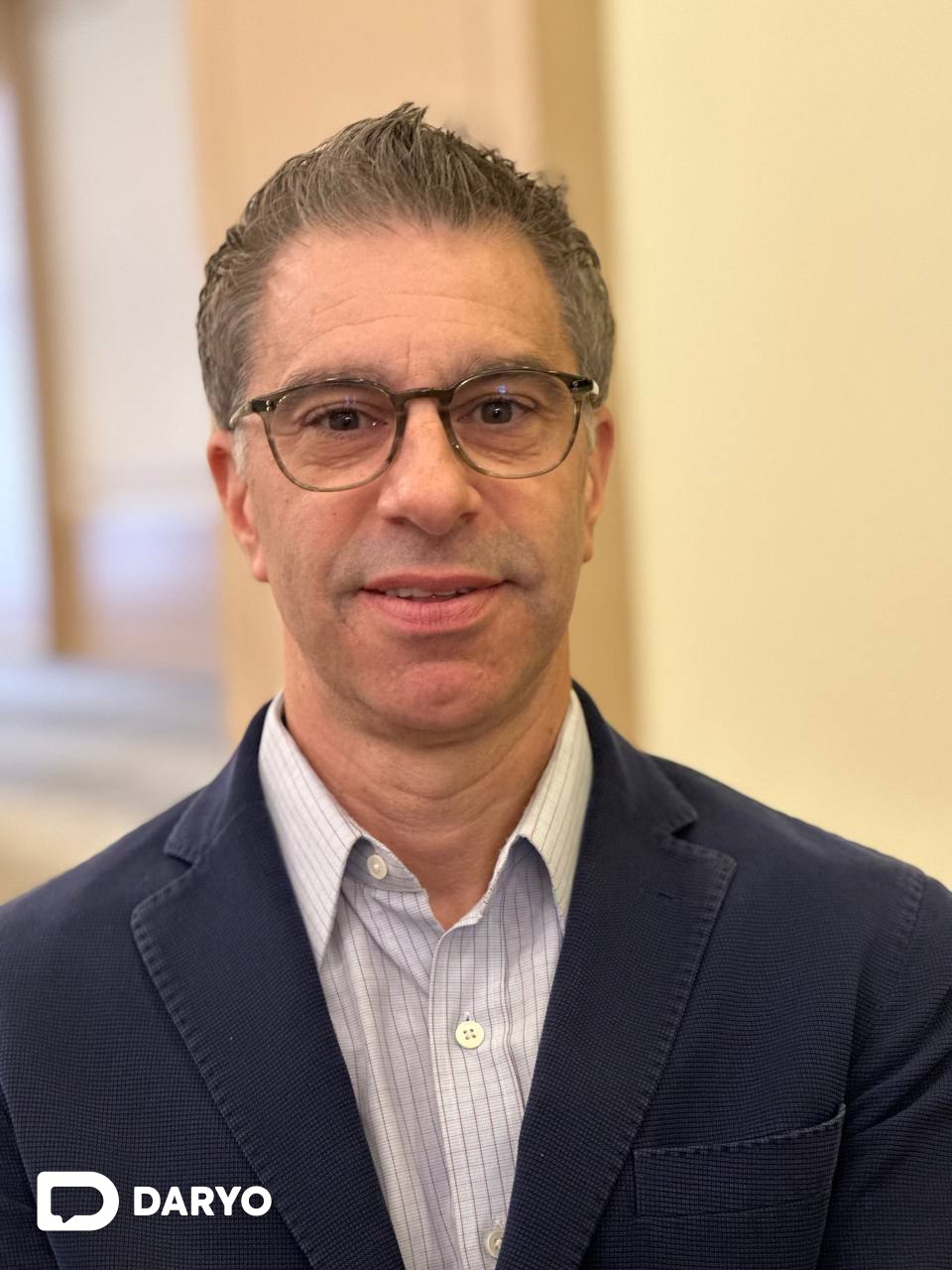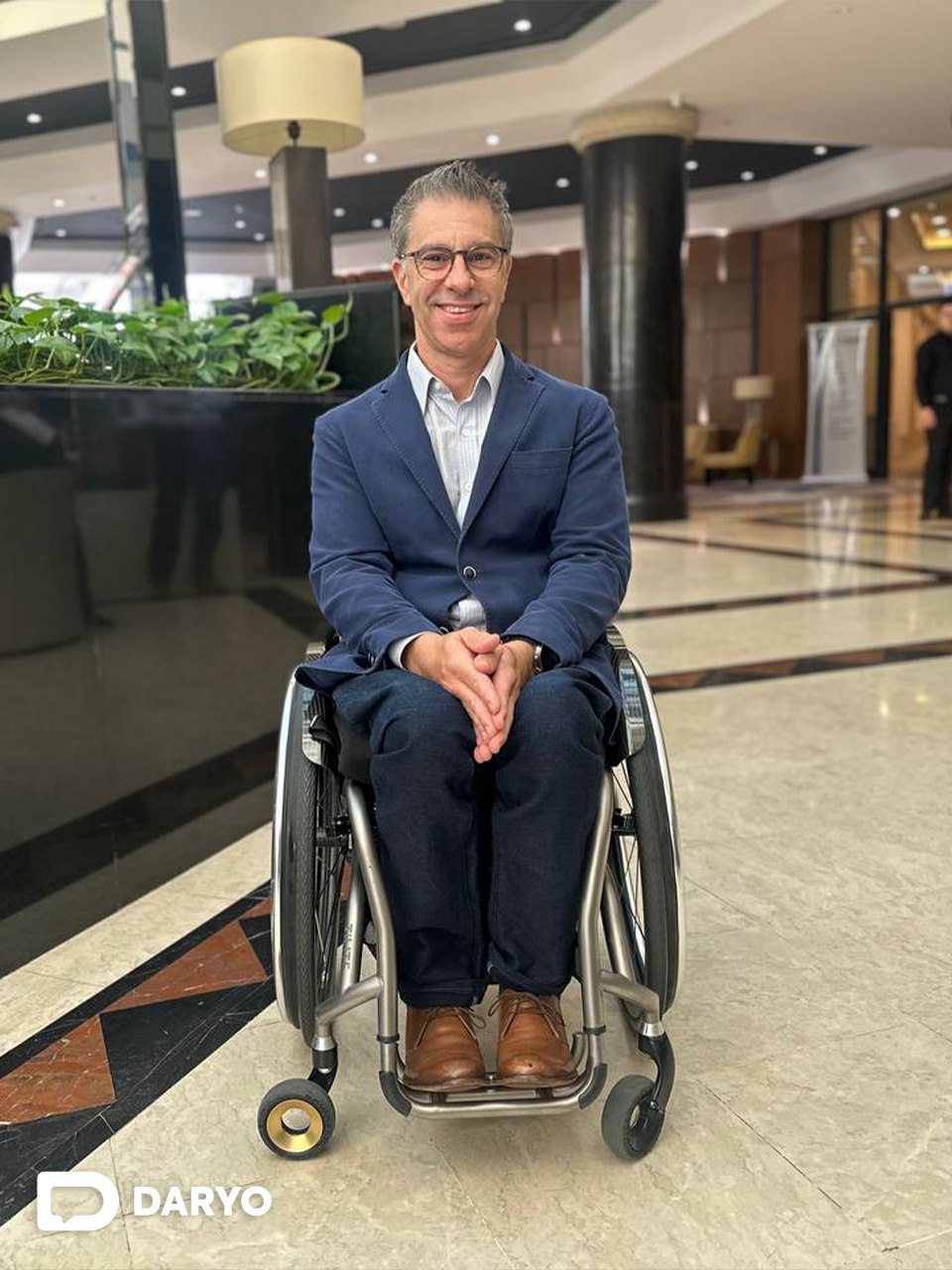Victor Calise's career has been marked by a wide range of accomplishments, from competing as a Paralympian to becoming a global advocate for disability rights. Thirty years ago, a bicycle accident left him with a spinal cord injury, changing the course of his life. Today, Victor Calise leads as the Director of Walmart’s Accessibility Center of Excellence, where he focuses on advancing disability inclusion across business and society.

A Journey of Advocacy and Leadership
Born and raised in New York City, Calise’s journey began in the wake of his devastating accident. Instead of allowing his disability to limit him, Calise chose to compete in the Paralympic Games, representing the United States in sledge hockey at the 1998 Winter Paralympics in Nagano. Reflecting on his time as an athlete, he said,
Competing in the Paralympics showed me that disability doesn’t define you. It’s what you do with your life that matters.

After his Paralympic career, Victor Calise returned to school and immersed himself in the world of sports management, specifically focusing on disabled sports. His passion for creating inclusive environments for people with disabilities led him to public service, first with New York City’s Department of Parks and Recreation, where he made parks accessible for people of all abilities.
It was important to me that New Yorkers with disabilities had access to the same parks and recreational spaces as everyone else,
Victor Calise shared.
Parks are the heart of community life, and ensuring they’re accessible is essential to building inclusive cities.
From there, Calise’s career took off. He was appointed Commissioner of the Mayor’s Office for People with Disabilities under Mayor Michael Bloomberg, a role that allowed him to shape New York City’s policies on accessibility.
We worked to make New York City the most accessible city in the world,
he said.
From accessible taxis to inclusive education, we were creating spaces where people with disabilities could participate fully in society.
Leading the Charge at Walmart
Today, Victor Calise is leading a new charge at Walmart, where he directs the company’s Accessibility Center of Excellence. His mission is to ensure that Walmart becomes the most accessible retailer in the world, both for customers and employees.
At Walmart, we’re committed to making sure that people with disabilities feel seen, supported, and connected,
he explained.
Victor Calise is particularly proud of Walmart’s sensory-friendly shopping hours, designed to make the in-store experience more comfortable for people with sensory sensitivities.
Every day, from 8 a.m. to 10 a.m., we lower the lights, shut off the TVs, and reduce the noise to create a quieter environment,
he explained.
It’s a simple change, but it makes a huge difference for people with autism or sensory disabilities.
Another key initiative Victor Calise leads is Walmart’s adaptive product line, which includes items designed for people with disabilities.
We’ve partnered with disability-owned businesses to sell their products on our platform,
he noted.
It’s about creating opportunities and ensuring that people with disabilities have access to the tools they need to live independently.
“Disability Is an Untapped Talent Pipeline”
Throughout his career, Victor Calise has been an outspoken advocate for the employment of people with disabilities. For him, inclusion isn’t just about doing the right thing—it’s smart business.
Disability is an untapped talent pipeline,
Victor Calise said passionately.
Businesses that invest in hiring people with disabilities not only create more inclusive work environments, but they also see tangible benefits. People with disabilities bring unique perspectives, and they’re often some of the most loyal, hardworking employees.
Calise’s message is clear: including people with disabilities in the workforce is both a moral and economic imperative.
It’s not just about corporate social responsibility,
he emphasized.
It’s about improving your bottom line. Businesses that embrace inclusion see better returns. It’s as simple as that.
A Global Vision for Inclusion
Calise’s visit to Uzbekistan is part of a broader initiative, building on President Biden’s discussions with Central Asian leaders on disability rights.
During his time in Tashkent, Carlisi has met with local organizations which focus on vocational training for people with disabilities. He was particularly inspired by his visit to Safiya Bakery, a business that employs over 60 deaf individuals.
What Safiya Bakery is doing is incredible,
Carlisi said with a smile.
They’ve shown that employing people with disabilities isn’t just the right thing to do—it’s good for business. Some of their deaf employees are outperforming their non-disabled peers. And beyond the productivity, there’s a real sense of belonging. You can feel it in the air when you walk in.
He also met with business leaders and government officials to discuss ways to expand employment opportunities for people with disabilities in Uzbekistan.
We talked about the importance of disability representation in media, the role businesses can play, and how we can build on the efforts already underway here,
Victor Calise said. While he’s impressed by Uzbekistan’s parks and open spaces, he noted areas for improvement in accessibility.
Your parks are beautiful, but there are too many stairs, and some of the ramps are too steep,
Victor Calise observed.
It’s important to have strong building codes that ensure accessibility from the start. But overall, I see a lot of potential here, and I’m excited to see where the country goes next.
Challenges and Progress: Employment of People with Disabilities
During the interview, Victor Calise didn’t shy away from discussing the ongoing challenges in the U.S. when it comes to employing people with disabilities.
In America, the unemployment rate for people with disabilities is still too high. From ages 16 to 64, people with disabilities are significantly less likely to be employed than their non-disabled peers. We’ve made progress, but there’s still a long way to go.
Victor Calise highlighted programs like NYC at Work, a public-private partnership he helped launch during his time as Commissioner in New York.
We were successful in getting people with disabilities real jobs with real pay and benefits,
he recalled.
It’s something I’m carrying over into my work at Walmart now. We’re constantly looking for ways to employ people with disabilities and create opportunities for them to grow.
A Global Advocate for Change
Calise’s journey from Paralympian to global advocate for disability rights is a testament to the power of resilience and leadership. As he continues his visit to Uzbekistan, he remains committed to helping governments and businesses around the world recognize the value of inclusion.
When we invest in people with disabilities, we invest in our future,
Victor Calise said in closing.
This work is about more than just creating accessible spaces—it’s about creating a world where everyone belongs. And that’s a world worth fighting for.
Calise's time in Tashkent has sparked a deeper conversation about disability rights, one that Carlisi hopes will continue long after his visit. As he leaves Uzbekistan, his message is clear: inclusion isn’t just a possibility—it’s a necessity. And with leaders like Carlisi at the forefront, the path toward a more inclusive world is brighter than ever.
Comments (0)